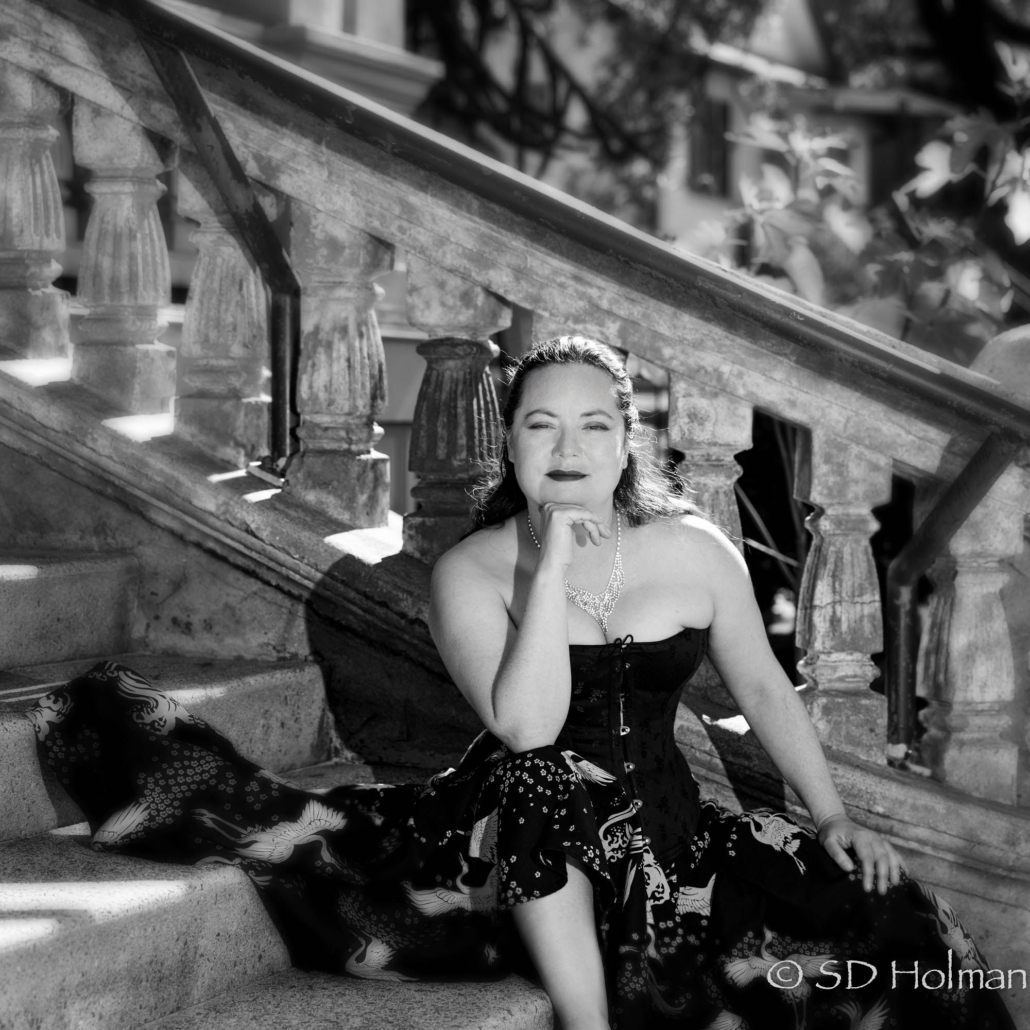Profile: Rachel Kiyo Iwaasa

Rachel Kiyo Iwaasa (Credit to SD Holman)
Rachel Kiyo Iwaasa is a sansei Nikkei (third-generation Japanese Canadian) musician broadly regarded as one of Canada’s foremost pianists. To hear her tell it, “I learned to play the piano about the same time I learned to tie my shoes.” Studying initially at the University of Victoria, she completed her musical education with a Doctor of Musical Arts (DMA) fellowship at the University of British Columbia. Since then, she has been engaged at major national music events across Europe and North America, including Gaudeamus Muziekweek in Utrecht, as well as working with the Vancouver Symphony and Victoria Symphony. Iwaasa also performs with flutist Mark Takeshi McGregor as the duo Tiresias, and has collaborated with innumerable noted composers, including Pulitzer-prize winner Caroline Shaw.
Despite the cosmopolitanism of her successes, Rachel remains deeply rooted in the locality of her family history, and it is this sense of memory which led to her collaboration with the Past Wrongs, Future Choices (PWFC) project. While her previous sources of inspiration have ranged from Greek mythology to golden age science fiction, she feels the time has come to explore the tragedies of her own past through her art. “I’ve been thinking for many, many years that I wanted to create a piece about my family history,” says Rachel.
The lives of Rachel’s paternal family are inextricably tied up with the national and global story of Nikkei dispossession and incarceration. The family relocated from Raymond, Alberta to Cumberland, BC, when Rachel’s father, Kaz Iwaasa, was young, a place she emphatically calls “the number one Japtown.” She explains, “in [my father’s] memory I continue to call them ‘Japtowns,’ so as to not blunt the kind of discrimination that he and his family suffered there.” When Kaz Iwaasa was twenty-three, in February 1942, he convinced his father to return to Raymond, citing fears of incarceration. While others in the community were initially skeptical, Kaz’s fears were confirmed the following month with the start of the mass uprooting of Japanese Canadians. Shortly after the family fled to Alberta, his sister, Chiyo Iwaasa, committed suicide. Rachel recalls, “I always grew up feeling haunted by her memory, even though I didn’t know much about her. […] It’s as though there were so many tears that my father’s life was not long enough for all of them. And so, here they are still in mine.”
Rachel began her partnership with PWFC during a two-month residency at UVic at the end of 2022. Her project is to be a narrated exploration of her family’s journey, written with the assistance of dramaturge and previous collaborator David Bloom, set to piano music composed by Leslie Ueda (also sansei, her father was interned at Kaslo) and naturally played by Rachel herself. The primary source base includes familial documents from extensive family history collections, as well as from the archives in the Landscapes of Injustice (LOI) database.. Says Rachel, “Sort of the easiest way to explain it is that I create the movie soundtrack for the story at the piano while I also tell it with my voice.” If PWFC is to have its own score, this will be it.
While hardly a stranger to academia, having studied and taught some twenty years, Rachel welcomes the fresh experience of union between artists, scholars, and community figures. In addition to sharing common themes and contrasts across disciplines, she values the opportunity to highlight less well-known aspects of the internment era. “The family separation is one of the parts of this story that I think tends to get underplayed,” she says. “I’ve been reading lots of [collective trauma narratives], and what keeps coming up is that in the midst of that, what people still found most painful is the separation of families. And that is something that was rife within that period of dispossession and displacement.” In addition, Rachel wishes to see represented the stories of those who, like her aunt, were consumed by the weight of their traumas during or after the events of the Pacific War: “I grew up with the story that Chiyo killed herself because she had inherited my grandmother’s schizophrenia. [A story] of it being a personal weakness, at least that’s how I understood it. It was only much later that I understood the timing, that it was really just after they had been displaced. And that’s not a coincidence.”
For Rachel, the allied work of artistic creation and scholarly writing amount to a form of collective healing. “When you have experiences that have commonalities but also contrasts, it allows one to understand and define an experience and a history in a different way than when you’re just looking at it in isolation. It’s meant that I’ve made more connections with artists working on some of the same history. And some of the friendships I’ve made working on Past Wrongs, Future Choices, I believe, are going to last a lifetime.”
This story was written by Aaron Stefik from an interview with Rachel Iwaasa.

 Instagram
Instagram